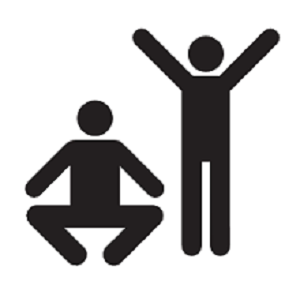 A combination of aerobic and resistance exercises can significantly boost the brain power of the over 50s, finds the most comprehensive review of the available evidence to date, by Australian researchers. The improvement occurs irrespective of the current state of brain health.
A combination of aerobic and resistance exercises can significantly boost the brain power of the over 50s, finds the most comprehensive review of the available evidence to date, by Australian researchers. The improvement occurs irrespective of the current state of brain health.
Researchers at the UC Research Institute for Sport and Exercise (UCRISE), University of Canberra, Canberra, Australia, the discipline of sport and exercise science, faculty of health, University of Canberra, and the Centre for Research on Ageing, Health and Wellbeing, Australian National University, Canberra.
And the effects were evident irrespective of the current state of an individual’s brain health, the analysis shows.
Physical exercise for older adults is seen as a promising means of warding off or halting a decline in brain health and cognitive abilities. Yet the evidence for its benefits is inconclusive, largely because of overly restrictive inclusion criteria in the reviews published to date, say the researchers.
n a bid to try and plug some of these gaps, they systematically reviewed 39 relevant studies published up to the end of 2016 to assess the potential impact of varying types, intensities, and durations of exercise on the brain health of the over 50s. They included aerobic exercise; resistance training (such as weights); multi-component exercise, which contains elements of both aerobic and resistance training; tai chi; and yoga in their analysis.
They analysed the potential impact of these activities on overall brain capacity (global cognition); attention (sustained alertness, including the ability to process information rapidly); executive function (processes responsible for goal oriented behaviours); memory (storage and retrieval); and working memory (short term application of found information).
Pooled analysis of the data showed that exercise improves the brain power of the over 50s, irrespective of the current state of their brain health.
Aerobic exercise significantly enhanced cognitive abilities while resistance training had a pronounced effect on executive function, memory, and working memory. The evidence is strong enough to recommend prescribing both types of exercise to improve brain health in the over 50s, say the researchers.
The data showed that tai chi also improved cognitive abilities, which backs the findings of previously published studies, but the analysis was based on just a few studies, caution the researchers, so will need to be confirmed in a large clinical trial.
Nevertheless, it’s an important finding, they suggest, because exercises like tai chi may be suitable for people who are unable to do more challenging forms of physical activity. And in terms of how much and how often, the data analysis showed that a session lasting between 45 and 60 minutes, of moderate to vigorous intensity, and of any frequency, was good for brain health.
The researchers point to some potential limitations of their review: their evidence was confined only to studies of supervised exercise and which had been published in English. Nevertheless, they conclude: “The findings suggest that an exercise programme with components of both aerobic and resistance type training, of at least moderate intensity and at least 45 minutes per session, on as many days of the week as possible, is beneficial to cognitive function in adults aged over 50.”
Abstract
Background: Physical exercise is seen as a promising intervention to prevent or delay cognitive decline in individuals aged 50 years and older, yet the evidence from reviews is not conclusive.
Objectives: To determine if physical exercise is effective in improving cognitive function in this population.
Design: Systematic review with multilevel meta-analysis.
Data sources: Electronic databases Medline (PubMed), EMBASE (Scopus), PsychINFO and CENTRAL (Cochrane) from inception to November 2016.
Eligibility criteria: Randomised controlled trials of physical exercise interventions in community-dwelling adults older than 50 years, with an outcome measure of cognitive function.
Results: The search returned 12 820 records, of which 39 studies were included in the systematic review. Analysis of 333 dependent effect sizes from 36 studies showed that physical exercise improved cognitive function (0.29; 95% CI 0.17 to 0.41; p<0.01). Interventions of aerobic exercise, resistance training, multicomponent training and tai chi, all had significant point estimates. When exercise prescription was examined, a duration of 45–60 min per session and at least moderate intensity, were associated with benefits to cognition. The results of the meta-analysis were consistent and independent of the cognitive domain tested or the cognitive status of the participants.
Conclusions: Physical exercise improved cognitive function in the over 50s, regardless of the cognitive status of participants. To improve cognitive function, this meta-analysis provides clinicians with evidence to recommend that patients obtain both aerobic and resistance exercise of at least moderate intensity on as many days of the week as feasible, in line with current exercise guidelines.
Authors
Joseph Michael Northey, Nicolas Cherbuin, Kate Louise Pumpa, Disa Jane Smee, Ben Rattray
[link url="http://www.bmj.com/company/newsroom/aerobic-and-resistance-exercise-combo-can-boost-brain-power-of-over-50s/"]BMJ material[/link]
[link url="http://bjsm.bmj.com/content/early/2017/03/30/bjsports-2016-096587"]British Journal of Sports Medicine review[/link]
